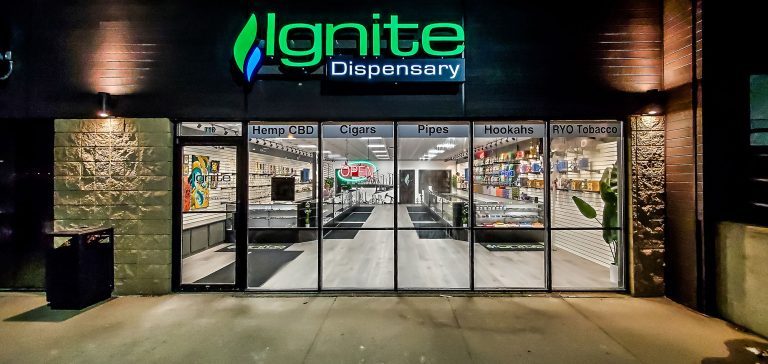Cannabinoid Info
Read up on the many cannabinoids on the market today. We present these cannabinoids in order of strength from strongest to weakest.
Cannabinoid Profile Breakdown
THCP
THCP (Δ9-Tetrahydrocannabiphorol) is a newly discovered, naturally-occurring analog of THC. The only difference between THCP from “regular” (Delta 9) THC is the presence of 2 extra carbons in its chemical structure. In the past, researchers have demonstrated that in order for THC to have any psychoactive effects at all, there need to be at least 3 carbons on this chain. The more carbons, the stronger the effect (there are limitations to this). For example, THCC has one carbon and is entirely non-psychoactive. THCV has three carbons and is about 25% the potency of Delta 9 THC. Delta 8, 9, and 10 THC come next with 5 carbons each, and THCP is at the top with 7 carbons. This subtle difference is enough to make THCP substantially stronger than conventional THC.
THCP occurs naturally in Cannabis – both marijuana and hemp – in trace amounts. It is roughly 5–10 times more potent than THC (some reports suggest it to be 33 times more potent). THCP may be the reason some strains are so much stronger than others, regardless of total THC concentration
THCP may be legal in the United States, but there is still some uncertainty there.
There are delta 7, delta 8, delta 9, and delta 10 versions of THCP.
Delta 9
What is Delta 9 THC?
THC stands for tetrahydrocannabinol — it’s the primary psychoactive component in marijuana that makes users high. THC works by activating specific receptors in the brain involved with memory, appetite, visual and auditory perception, coordination, and much more. By interacting with these receptors, THC has an effect on all these processes — resulting in the characteristic high produced by marijuana.
Delta 9 THC (Δ9-tetrahydrocannabinol) is the primary cannabinoid in marijuana plants, accounting for up to 25% of the plant’s weight. Delta 8 THC (Δ8-tetrahydrocannabinol) is roughly half as strong and present in much lower concentrations (less than 1%).
THC is the predominant cannabinoid in marijuana plants, but is present in very low concentrations in hemp plants. THC has a variety of medical benefits that range from sleep-support to painkilling.
What Does THC Feel Like?
The high from using THC products can vary a lot from one person to the next. Factors such as dose, tolerance, and the strain of marijuana used can all dramatically alter the experience. While under the effects of THC, you may feel euphoria, increased motivation, a feeling of wakefulness, giddiness, hunger, creativity, and changes in visual and auditory perception.
The THC high can feel very calming and relaxing, but it can also trigger anxiety and paranoia. The best way to ensure your experience remains positive is to avoid using too much THC and only using it in a place you feel comfortable and safe. Even minor stress triggers can lead to anxiety while under the effects of marijuana.
Many people use THC to help stimulate the creative thought process, relax the mind after a stressful day of work (in low doses), or as a treatment for specific medical conditions like chronic nerve pain, poor appetite, or glaucoma.
HHC
HHC (hexahydrocannabinol) is the most stable form of THC. It’s resistant to heat and UV radiation and has a substantially longer shelf-life than THC. There are several isomers of this hydrogenated form of THC.
HHC is to THC what margarine is to butter.
By saturating the molecule with hydrogen atoms, the shelf-life of this cannabinoid is extended substantially without affecting the effect profile too much.
HHC is naturally occurring in Cannabis plants, but only in trace concentrations.
Basically, HHC is THC without any double bonds in its chemical structure. It’s the exact opposite molecule as CBN (cannabinol), which forms as THC breaks down and gains additional double-bonds. With HHC, all the double bonds have been broken and replaced with hydrogen (AKA hydrogenation).
HHC offers similar effects & potency compared to THC, but has a substantially longer shelf-life & is more resistant to high heat or UV exposure. The safety profile of HHC is still unclear, but there’s no evidence to suggest it’s dangerous. HHC produces feelings of euphoria and stimulation, altered visual and auditory perception, changes in heart rate and body temperature, and altered headspace and cognition.
Many users report the effects of HHC are similar to that of delta 8 THC in terms of being more heavily weighted towards relaxation than stimulation. HHC is more potent than delta 8 but slightly less potent than delta 9 THC.
Delta 8
Delta 8 THC (delta-8-tetrahydrocannabinol) is an analog of delta 9 THC, which means they have the same structure, with one slight difference. Both molecules are virtually identical aside from the location of a double bond in the chemical structure. That’s it.
The delta 9 isomer has this bond at the 9th carbon chain, while the delta 8 isomer has this double bond at the 8th carbon chain. The difference is minimal, but it ends up having a noticeable difference in terms of effect profile.
Delta 8 is great for people who enjoy the effects of THC but find it makes them too anxious. Delta 8 THC also has a longer shelf-life than delta 9 THC. In traditional marijuana, over time, some of the delta 9 THC is converted to delta 8 THC, while the rest breaks down into another cannabinoid called CBN (cannabinol).
Features of Delta 8 THC
- Similar high to delta 9 THC, but much less anxiety-inducing
- Improves appetite much more efficiently than regular THC
- It’s more stable and has a longer shelf life than delta 9 THC
- Roughly half as potent as delta 9 THC
- Binds both the CB1 and CB2 endocannabinoid receptors
- The body develops a tolerance to delta 8 THC fairly quickly
- Delta 8 is considered the middle-ground between THC & CBD products
The effects of delta 8 are very similar to delta 9, but with some subtle differences. Delta 8 is much more soothing, relaxing, and mellow. It’s only about 50 percent as strong as delta 9, which makes it easier to use the right dose without going overboard. The best way to describe how this cannabinoid makes you feel is “chill.”
The downside of this compound is that it also has a higher likelihood of causing the munchies, and at higher doses it can make you feel a bit sleepy in higher doses (although this may be a benefit depending on what you’re using it for).
D10
Delta 10 THC is an isomer of delta 8 THC and delta 9 THC. Isomers are molecules that have the same chemical formula but a different arrangement of atoms.
You can think of it as ice cream. All ice cream is still ice cream, but it comes in many different flavors. Delta 8, 9, and 10 THC are essentially different flavors of the THC molecule.
The Delta number refers to the position of the double bond in THC’s chemical structure. Delta 10 has the double bond in the tenth position, while delta 9 has this bond in the ninth position, and so on. This is the only difference between each version of THC. It’s not a big enough difference to fundamentally change the effects you can expect from THC. All forms of THC are psychotropic — however, they do have different potencies and the qualitative experience of the high they produce can be different as well.
What Does Delta 10 Feel Like?
- Δ10 is roughly half as potent as Δ9 THC
- Δ10 is more stimulating & nootropic
- Δ10 is better than Δ9 for promoting flow states, creativity, euphoria, & focus
- Δ10 appears to have less side effects than Δ9
If we could place delta 8, 9, and 10 on a scale, we’d have delta 8 on the far left (sedative and relaxing) and delta 10 on the far right (stimulating and nootropic). Delta 9 would be somewhere in between the two.
6a10a THC
Delta 6a10a THC is a cannabinoid like Delta 9 THC and CBD. It is very similar to them in their molecular structure, but with subtle differences that make it a completely distinct experience. It is easy to see chemistry as if it were magic. In cannabis, slight differences in a molecule cause unique psychoactive effects that users report to be very different from Delta 9 and CBD.
Delta 6a10a THC comes naturally from hemp, just not in significant quantities as CBD or Delta 9 THC. For this reason, producers can extract or synthesize it from other cannabinoids. Producers extract Delta 6a10a THC from hemp by distillation, or it is possible to isomerize other cannabinoids, which means to change the molecular structure of a cannabinoid that is already similar to Delta 6a10a THC, like Delta 10 TH,C and turn it into 6a10a.
It is common to mislabel Delta 6a10a THC as Delta 10 due to incorrect lab testing results. This is not to blame the laboratories, though; there are so many compounds eluting from the chromatography test that it is hard to tell the difference between a rare substance and a better-known compound.
THCV
Δ9-Tetrahydrocannabivarin (THCV) is a cannabis-derived compound with unique properties that set it apart from the more common cannabinoids, such as delta 9 (THC). The main advantage of THCV over THC is the lack of psychoactive effects.
As its name suggests, THCV is similar to THC in molecular structure, but it provides a variety of pronounced and altogether different effects. A note for vaporizer enthusiasts: THCV has a boiling point of 428 °F (220 °C), so you’ll need to turn it up higher than you would for THC. Some features of THCV:
THCV is an appetite suppressant. In contrast to THC, THCV may dull the appetite. This may be good for consumers focused on weight loss, but THCV should be avoided by patients treating appetite loss or anorexia.
THCV may help with diabetes. Research shows promise in THCV’s ability to regulate blood sugar levels and reduce insulin resistance.
THCV may reduce panic attacks. It appears to curb anxiety attacks in PTSD patients without suppressing emotion.
THCV may help with Alzheimer’s. Tremors, motor control, and brain lesions associated with Alzheimer’s disease appear to be improved by THCV, but research is in progress.
THCV stimulates bone growth. Because it promotes the growth of new bone cells, THCV is being looked at for osteoporosis and other bone-related conditions.
Minor or no psychoactive effects – THCV can only produce a “high” in extremely high doses. At high doses in potent strains, THCV will produce psychoactive effects that are generally stimulating and promote mental clarity. They are also fast-acting and fast-dissipating.
CBN
CBN stands for cannabinol. It’s the end product of THC as it breaks down.
The longer hemp is stored after harvest, the higher the CBN concentration. Therefore, cannabis flowers that have been aged or stored for a long time will have higher concentrations of CBN than fresh flowers.
Additionally, cannabis plants that were harvested late tend to have higher CBN content than plants harvested early or at peak ripeness.
Like most cannabinoids, CBN is entirely non-toxic but it is mildly psychoactive in high doses.
This cannabinoid is best known for its sedative effects. It’s been suggested to be the primary ingredient responsible for causing the “couch-lock” effect in certain marijuana or hemp strains.
CBN Features
- CBN is created as THC breaks down
- CBN may enhance the psychoactive effects of THC
- May slow the progression of ALS
- Neuroprotective action on brain & nerve cells
- CBN alone and in combination with CBD has potent muscle-relaxant effects
- Alleviates glaucoma pain
- Inhibits bacterial growth & infection
- Stimulates appetite
- Anti-inflammatory & analgesic
- Alleviates arthritis pain
- May promote sleep (disputed)
CBN binds to the same endocannabinoid receptors as THC (CB1 and CB2 receptors). Activation of the CB1 receptor, in particular, is responsible for characteristic psychoactive effects associated with marijuana. Compared to THC, the effects of CBN are about 10% as strong. This may produce psychoactive effects for some people in larger doses, but most people won’t feel high from this cannabinoid.
If you have any questions about cannabinoids or the specific information on this page, feel free to call or visit Ignite Dispensary!
The statements made regarding these products have not been evaluated by the Food and Drug Administration. The efficacy of these products has not been confirmed by FDA-approved research. These products are not intended to diagnose, treat, cure or prevent any disease. All information presented here is not meant as a substitute for or alternative to information from healthcare practitioners. Please consult your healthcare professional about potential interactions or other possible complications before using any product. The Federal Food, Drug, and Cosmetic Act requires this notice.
Find A Store Near You
Ignite Dispensary is an all-inclusive dispensary for Hemp, CBD, tobacco, cigar, hookah and vapor products. Our flagship location in Spooner, WI was established in 2016, and we’ve expanded to Hayward, Superior, Milwaukee, Manitowoc, and New Richmond, WI, as well as Bismarck, ND.











